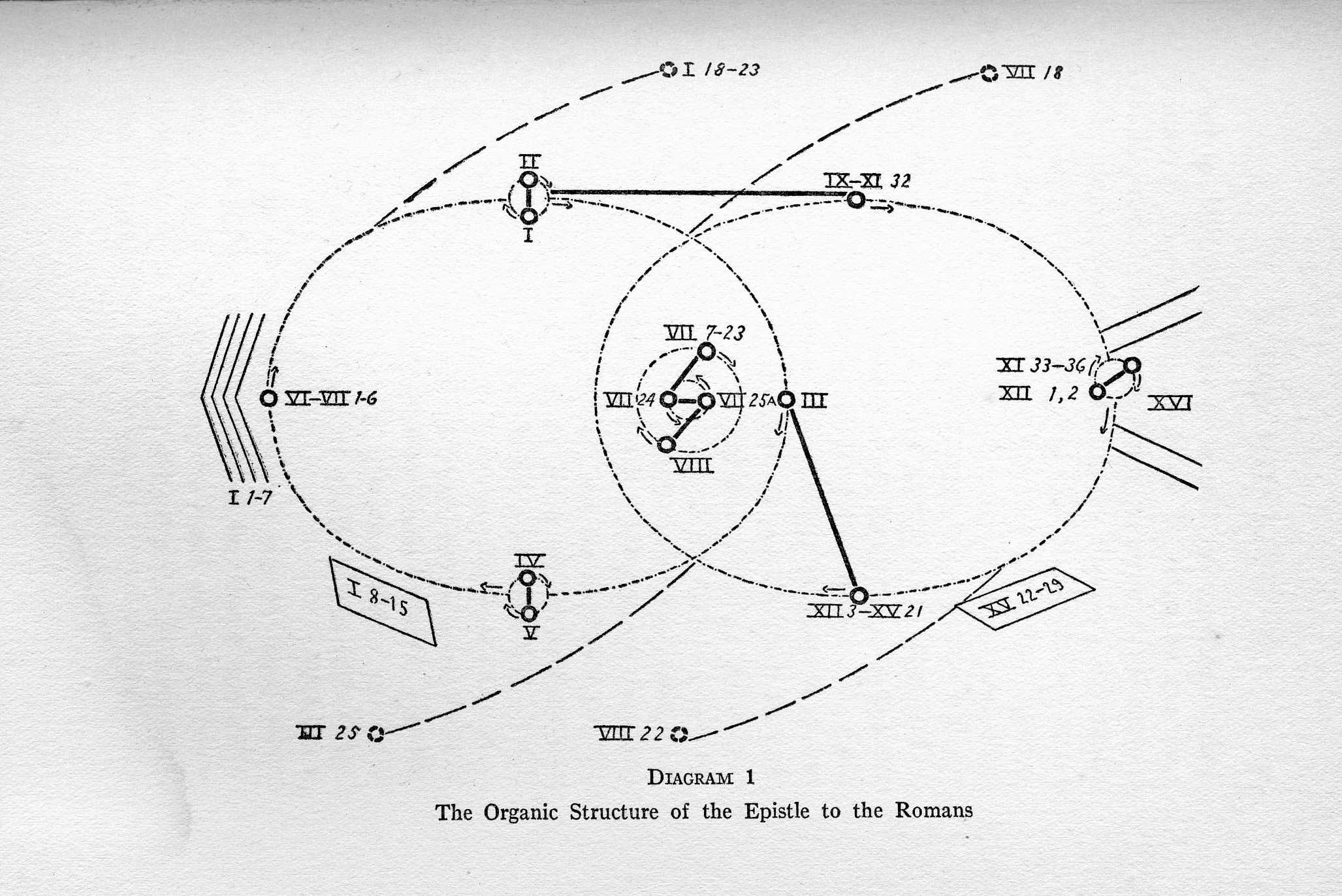

 |
|
|
Now let us speak about the last part of the epistle, which I have said is addressed to our practical or instinctive centre. This is represented by the orbit on the right.
Chapters nine to eleven form the first electron. They are universalist in view-point. Paul says all shall be saved, even the Jews, just as he was saved. That portion of the epistle is, frankly, of secondary interest to us now, but it was of overwhelming importance to Paul because it dealt with what was really his own private problem, instinctive in him, on account of his conditioning. He loved his race, he was proud of his race, and he never could quite figure out logically how it was that, although the Messiah was to be given to them, when He came they rejected Him. I think, if we study the Epistle to the Philippians, we find that Paul eventually solved that problem. It was his undoubted thought, that if Christ had wished it, He would not have been rejected.
After this portion, which is a little difficult for us, and which is really a development of the second chapter, in which he states that the Jews have not righteousness, Paul reaches to a great height. I refer to the last portion of the eleventh chapter and the beginning of the twelfth. I think it is one of the most important parts of the Bible. I have represented it in the diagram as a twin electron or planet because the thought is twofold.
First Paul points out that it is impossible to have an intellectual conception of God:
"Who has known the mind of the Lord, or shared his counsels?"
He gives that up as hopeless. Then he points the way out:
"Present your bodies to him as a living sacrifice, which is your normal function. And do not be fashioned according to this world but be metamorphosed by the rebuilding of your mind so that you may learn by experience what God's will is."
Here we have the same insistence on experience, the same insistence upon the necessity of knowing our place in God's plan, the same insistence upon a complete metamorphosis which includes the complete dissociation from all our planetary predilections, a crucifixion to the world indeed. And all this is only our reasonable service, that is, our normal function. The Greek word is "logical," translated in I Peter 2:2 as "spiritual,"—spiritual milk. The Authorized Version says the milk of the Word. That is nearly it. If the Word represents true life, then the service of the Word is our normal service.
This tremendous statement serves as an introduction to what is called the practical section, which I have represented as another electron in the second orbit. Here Paul points out what happens when the logical function, has been appreciated and accepted and acted upon. This part of the epistle is sometimes made fun of. It is a list of rules of conduct, a gentleman's manual of behavior. But it cannot be dismissed so lightly. Paul well understood, and often says that adherence to these rules or any other means nothing at all. They are simply the fruit of the original giving up of self, the assuming of the cosmic duty. Furthermore this practical section is organically related to the sixth chapter where Paul points out what faith in Christ is, namely, dying with Christ. Dying with Christ is not a beautiful generality. This shows what it means in actual practical life. As a further indication of the importance of this section, we may note the 12th chapter, beginning at the 4th verse. While we are doing these things we are acting, not merely individually, but as parts of one body—one body in Christ, he says. We serve as organs for one another, and the success of the whole plan depends upon our co-operation.